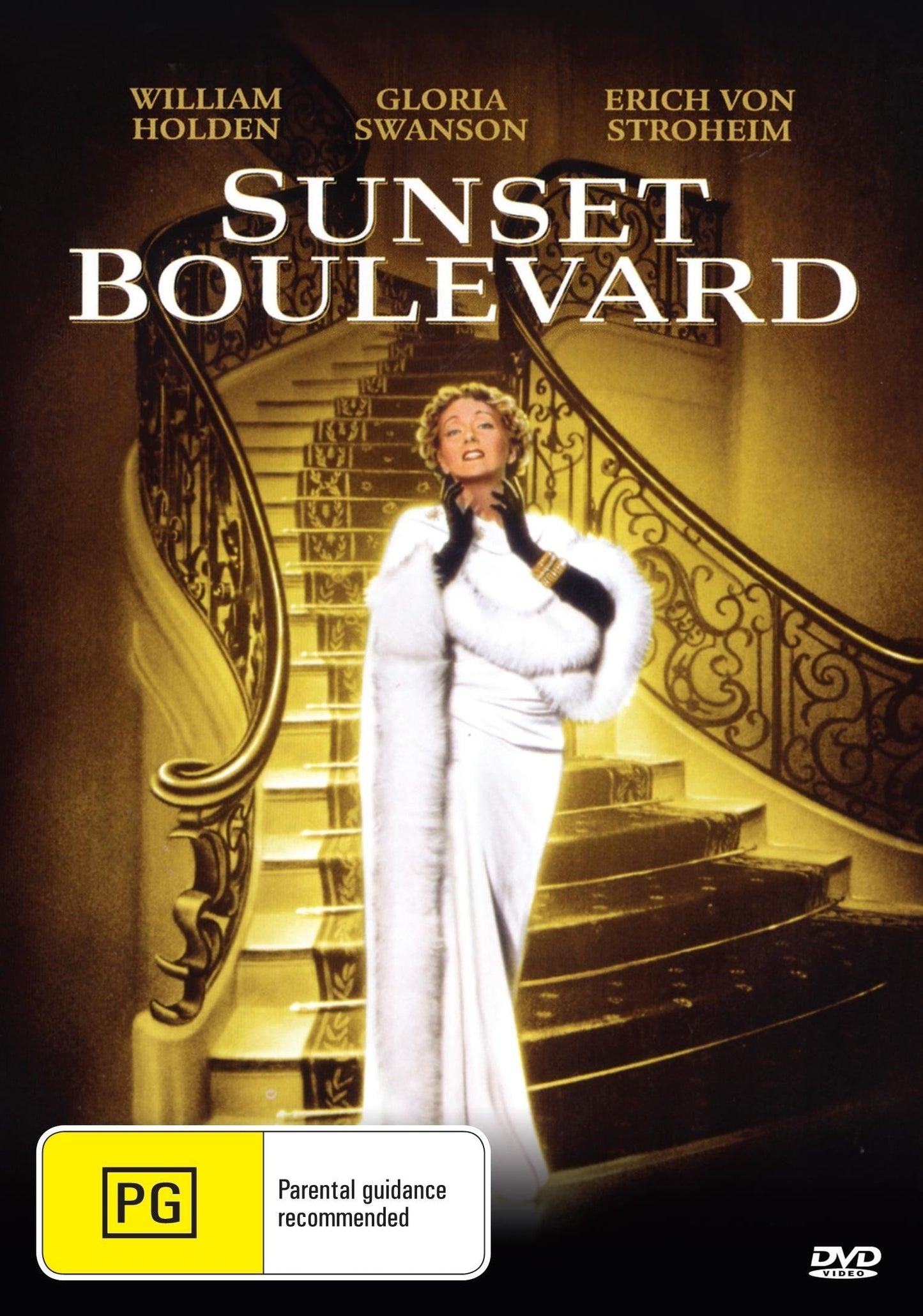rareandcollectibledvds
Sunset Boulevard
Sunset Boulevard
 Before you ORDER please check do you wish to order a DVD or a Digital Download file
Before you ORDER please check do you wish to order a DVD or a Digital Download fileFor DVD use the GET DVD Button
For a Digital Download use the DOWNLOAD Button
Couldn't load pickup availability
Storyline
In Hollywood of the 50’s, the obscure screenplay writer Joe Gillis is not able to sell his work to the studios, is full of debts and is thinking in returning to his hometown to work in an office. While trying to escape from his creditors, he has a flat tire and parks his car in a decadent mansion in Sunset Boulevard. He meets the owner and former silent-movie star Norma Desmond, who lives alone with her butler and driver Max Von Mayerling. Norma is demented and believes she will return to the cinema industry, and is protected and isolated from the world by Max, who was her director and husband in the past and still loves her. Norma proposes Joe to move to the mansion and help her in writing a screenplay for her comeback to the cinema, and the small-time writer becomes her lover and gigolo. When Joe falls in love for the young aspirant writer Betty Schaefer, Norma becomes jealous and completely insane and her madness leads to a tragic end.
They Don’t Make ‘Em Like This Anymore
This is such a great film on so many levels I can’t really settle on where to begin. It is so beautifully shot (in that stark black/white that only nitrate negative could achieve), has a witty, clever and extremely well-written script, features some of the best acting in film’s history, acrobatically balances the main plot/subplots with expert precision, contains some of the best characters on celluloid, has many true-to-life parallels (Swanson’s career/real life cameos/DeMille’s involvement/etc) and is peppered with such great dialogue/narration that today’s film writers should take note. If that weren’t enough, there’s even a cameo by silent film great Buster Keaton (among others).
One of the most appealing aspects of this film is how, in the story, an aging, forgotten star is trying to recapture a bygone era (the silent film era). What’s interesting is that now, so many years later, we’re looking back at her looking back. To present day viewers, Gloria Swanson of the 1950’s is a long forgotten lost gem and to experience her own longing for the 1920’s is especially captivating (and a little chilling, I might add). I don’t think this film could have had that same effect when it debuted and maybe this added dimension holds so much more appeal for today’s audiences. We all know that nothing lasts forever, but we don’t often consider the abandoned participants; much like the veterans of a past war.
In response to the famous Swanson line (while watching one of her silent films): “…we didn’t need dialogue; we had faces”, I’d like to also add that they “didn’t need movies; they had films.”


